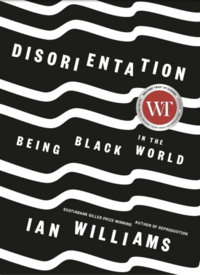Take a photo of a barcode or cover
marisatn's review
challenging
emotional
funny
informative
reflective
sad
medium-paced
4.25
This was an interesting essay collection.
msnreynolds's review against another edition
5.0
An important read on the experience of being Black, written by a former PDSB student!
benrogerswpg's review
4.0
I enjoyed this book.
I found it a strong read on social justice, race, and social issues.
Would recommend!
Ian is an impressive author, I would keep a close eye on his career.
3.9/5
I found it a strong read on social justice, race, and social issues.
Would recommend!
Ian is an impressive author, I would keep a close eye on his career.
3.9/5
nigel_hakeem's review
challenging
dark
emotional
hopeful
informative
inspiring
reflective
medium-paced
5.0
Amazing book. At first, I was a little hesitant because of Williams' liberal politics, but jeez, these essays were amazing. I found countless points that I could relate to, and that inspired my own writing. Williams is able to describe the Black experience in a white world so succinctly and powerfully that the whole book feels like one big gut punch.
The essays Disorientation, Ten Bullets on Whiteness, Four to Eighteen Days, Between Us, and Sighting especially stood out to me. Please pick up this book and give it a good read. Both you and Williams deserve it.
The essays Disorientation, Ten Bullets on Whiteness, Four to Eighteen Days, Between Us, and Sighting especially stood out to me. Please pick up this book and give it a good read. Both you and Williams deserve it.
albatrossonhalfpointe's review
challenging
funny
informative
reflective
medium-paced
4.0
Definitely read this book. Some interesting observations, some that are straight-up hilarious, and some that will probably feel uncomfortable. Those are the ones to sit with for a bit.
More at https://kingshearte.blogspot.com/2023/07/disorientation-being-black-in-world-ian.html
meag98's review
challenging
informative
reflective
fast-paced
4.75
very well written and thought provoking, and especially poignant in the “aftermath” of the pandemic. i would definitely recommend this to anyone looking for more work by Black, Canadian authors!
layla_platt's review
4.0
On audio. Wonderfully poignant and moving essays that everyone and anyone could learn something from.
